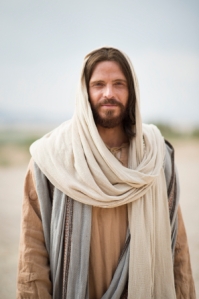“Darkness cannot drive out darkness: only light can do that. Hate cannot drive out hate: only love can do that.” –Dr. Martin Luther King Jr.
When I was a kid, I was a little punishment-happy and vengeful when it came to my siblings. I was a semi-naughty kid and would lure my siblings into a trap of doing something that I knew they would get into trouble for. I would then look at my dad or mom and say, “well, aren’t you going to punish them?” I remember my dad would say—“what do you think I should do? Should I spank them?” I would gleefully respond, “Yes! Spank them! They deserve it!” I felt that justice would be served once their proper punishment had been meted out to them. Of course, my dad could see right through my barely disguised joy and take time to talk to all of us.
Luckily, I’ve since improved and no longer seek to get my siblings into trouble. However, I’ve been reflecting on our human attitudes about justice and mercy and it seems that, at times, we all revert back to our childhood days. As much as we crave mercy, forgiveness, and understanding for our own weaknesses and faults, we demand justice for the weaknesses and faults of others. As President Dieter F. Uchtdorf, an apostle of the Lord, said in a recent address, “Because we all depend on the mercy of God, how can we deny to others any measure of the grace we so desperately desire for ourselves?”
I have noticed this a lot recently, but in a slightly different way than we typically discuss. I have noticed, in the name of justice, a lot of hate being thrown at hate. Oftentimes, it seems the only appropriate response. During the Civil Rights Movement, many felt that Dr. King’s ideas were just too passive—the environment was too unjust and hateful—they had to fight it. However, now we look at his ideas and actions, along with Gandhi’s, as the right thing to do. Why? As Dr. King said, you can’t fight hate with hate—only love.
Christ taught us the same thing—he said to love our enemies, bless them that curse us, do good to them that hate us, and pray for them which despitefully use us and persecute us (Matthew 5). He goes on to imply that it is not that commendable to love those who love us—that’s easy, everyone does this! The real task—the one that Christ did so well and has asked us all to strive for—is to love those whom it is difficult to love.
While it is true that there are those who hate and discriminate unfairly, how do we improve the situation by turning around and hating them? Isn’t it ironic to hate someone because they hate someone else? I believe that people should stand up for their beliefs and try to correct injustice where they see it—however, doing so in a spirit of love and compassion is the only way to do it if we are to stay consistent and true to what we are, in essence, arguing for.
In Matthew 5, verse 20, the Lord states, “For I say unto you, That except your righteousness shall exceed the righteousness of the scribes and Pharisees, ye shall in no case enter the kingdom of heaven.” Here is where I think we could plug in “bigot” or “hater” for “scribes and Pharisees” and take away the same meaning. If we are fighting hate with hate and darkness with more darkness, are we then more righteous than they?
To read/watch/listen to all of President Uchtdorf’s wonderful address, entitled “The Merciful Obtain Mercy,” here is a link:
http://www.lds.org/general-conference/2012/04/the-merciful-obtain-mercy?lang=eng

